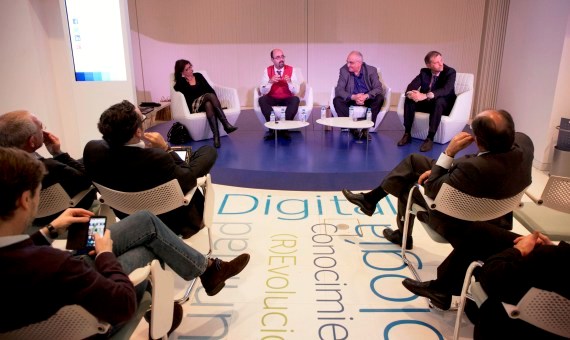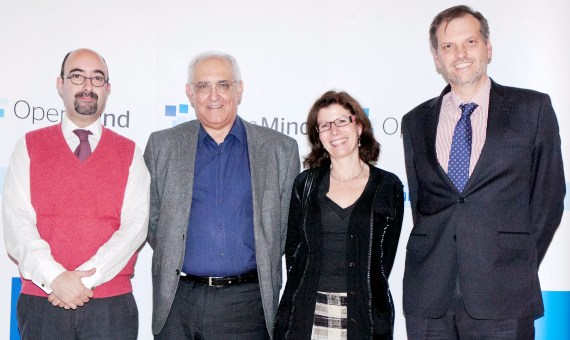The 2nd Collaborators Event of the OpenMind community took place on December 15, 2014 in Madrid, which bid farewell to the year with the panel discussion on “Collaborative Work Outlook. Co-creation and Organizations in the 21st Century”.
During the event, OpenMind collaborators and authors contributed different views on one of the trends that has been consolidated in different areas over recent years: collaboration. Sharing resources and knowledge, business models based on co-creation and forms of collaborative work are increasingly important in a society that is always connected, through information technology and the Internet.

What effect does collaborative work have on organizations? Companies, universities, scientific institutions and researchers are all actors in society that are experiencing this transformation toward collaborative forms of development.

Celia de Anca and Salvador Aragón, the director of the Center for Diversity in Global Management and the Chief Innovation Officer (CIO) at IE Business School, reflected on how collaboration has become one of the catchcries of the digital age and how co-creating, co-working, sharing, co-designing and co-thinking are now key elements of a new type of economic activity. This collective mentality has changed our traditional view of diversity, which now includes new cultural identities
“You can only be different among equals”, Hannah Arendt.
Manuel de León, Professor of the Spanish Higher Council for Scientific Research, reviewed some of the initiatives that have historically demonstrated the importance of collaboration in scientific work and the world of mathematics, such as the Classification Theorem of Finite Groups or the Bourbaki Group, and presented the public blog POLYMATH, a project for mathematicians around the world to work together.
Carlos Bezos, project manager at IVF-SPAIN, closed the panel discussion with an analysis of the effects of collaboration in the field of health. Patient-centered care is critical to get therapeutic results. From this perspective hospitals and pharmaceutical companies have been gradually incorporating the patient’s perspective into their processes, which provides the most radical and best results, as in the case of Bridgepoint Hospital (Toronto), or the HU-CI project.
With this initiative, OpenMind closes a year, 2014, in which our ties with our collaborators and different institutions have been strengthened, driving the growth of the BBVA knowledge community, and bringing the reflections and ideas that professionals from different fields share, to people throughout the world in our platform in the collaborators section.
OpenMind
Comments on this publication